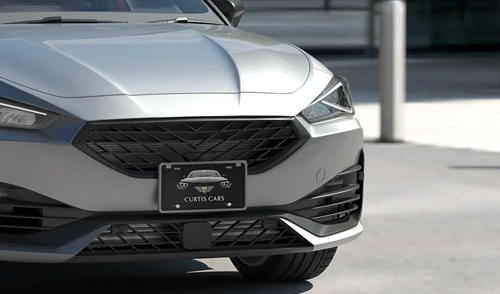Yes, it is illegal to customize your license plate on your own in the United States. However, you can legally personalize your license plate through state-approved programs, often called vanity or personalized plates. Customizing a plate outside official channels—such as altering the design, numbers, or letters—is a violation of state laws and can lead to fines, vehicle impoundment, or other penalties.
Legal Ways to Customize Your License Plate
1. Vanity Plates: Every state offers vanity plate programs that allow drivers to choose custom combinations of letters and numbers, subject to approval. States charge an additional fee for these plates, which varies based on the state and design.
2. Specialty Plates: States also provide specialty plates supporting causes or organizations, such as wildlife conservation, military service, or university affiliations. These plates can be customized with unique combinations but must be ordered through official channels.
3. Custom Frames and Covers: Adding frames or covers to a license plate is typically allowed, as long as the plate remains fully visible and legible. State laws vary on the types of frames or covers permitted, particularly those that obscure any part of the plate.
Illegal Customization of License Plates
Customizing your license plate outside of state regulations is illegal. Examples include:
1. Altering Numbers or Letters: Any attempt to change or obscure the characters on a plate is considered tampering and is punishable by law.
2. Adding Stickers or Decals: Unauthorized stickers or decals that obscure or modify the design of a plate are prohibited.
3. Using Non-Approved Plates: Plates that mimic official designs or are manufactured privately are not legally valid for use on public roads.
4. Obscuring the Plate: Covers, tints, or frames that obscure parts of the license plate, such as the state name or registration stickers, are often illegal.
Penalties for Illegal License Plate Customization
1. Fines: States impose fines ranging from $50 to over $500 for altering or improperly displaying a license plate.
2. Vehicle Impoundment: If a plate is deemed fraudulent or tampered with, law enforcement may impound the vehicle until a proper plate is issued.
3. Criminal Charges: Altering a plate with the intent to deceive, such as avoiding tolls or traffic cameras, can lead to criminal charges, including misdemeanors or felonies.
4. License Suspension: Some states may suspend driving privileges for repeat offenders.
State-Specific Rules
- California
- Altering a plate is a violation of California Vehicle Code §4464, which prohibits covering, altering, or obscuring the plate.
- New York
- Plates must remain legible and unobstructed at all times, as per New York Vehicle and Traffic Law §402.
- Texas
- Customizing or defacing a plate can lead to fines and vehicle impoundment under Texas Transportation Code §504.945.
Importance of Maintaining Legal Plates
1. Traffic Safety: License plates allow law enforcement to identify vehicles in traffic stops or emergencies. Tampered plates can hinder public safety.
2. Compliance with Registration: Accurate and visible plates ensure compliance with state vehicle registration laws.
3. Avoiding Fraudulent Use: Customized plates used to evade tolls, speed cameras, or parking tickets can lead to significant legal consequences.
Related FAQs
Q1. Can I legally customize my license plate?
Ans: Yes, but only through state-approved programs like vanity or specialty plates. Altering plates on your own is illegal.
Q2. What happens if I modify my license plate?
Ans: Modifying a plate can result in fines, vehicle impoundment, or criminal charges, depending on the severity of the alteration and intent.
Q3. Are tinted license plate covers legal?
Ans: Tinted covers are illegal in many states as they obscure the plate’s visibility. Always check state-specific regulations.
Q4. Can I add stickers or decals to my plate?
Ans: No, unauthorized stickers or decals are prohibited. Only state-issued registration stickers are allowed.
Q5. How much does a vanity plate cost?
Ans: Costs vary by state, typically ranging from $25 to $100 annually, in addition to standard registration fees.
Conclusion
While it is not illegal to personalize your license plate through official state programs, altering or customizing plates independently is against the law. Such actions can lead to fines, vehicle impoundment, or criminal charges. To legally customize your plate, follow state guidelines for vanity or specialty plates. Maintaining a valid, unaltered plate ensures compliance with the law and helps uphold traffic safety.


